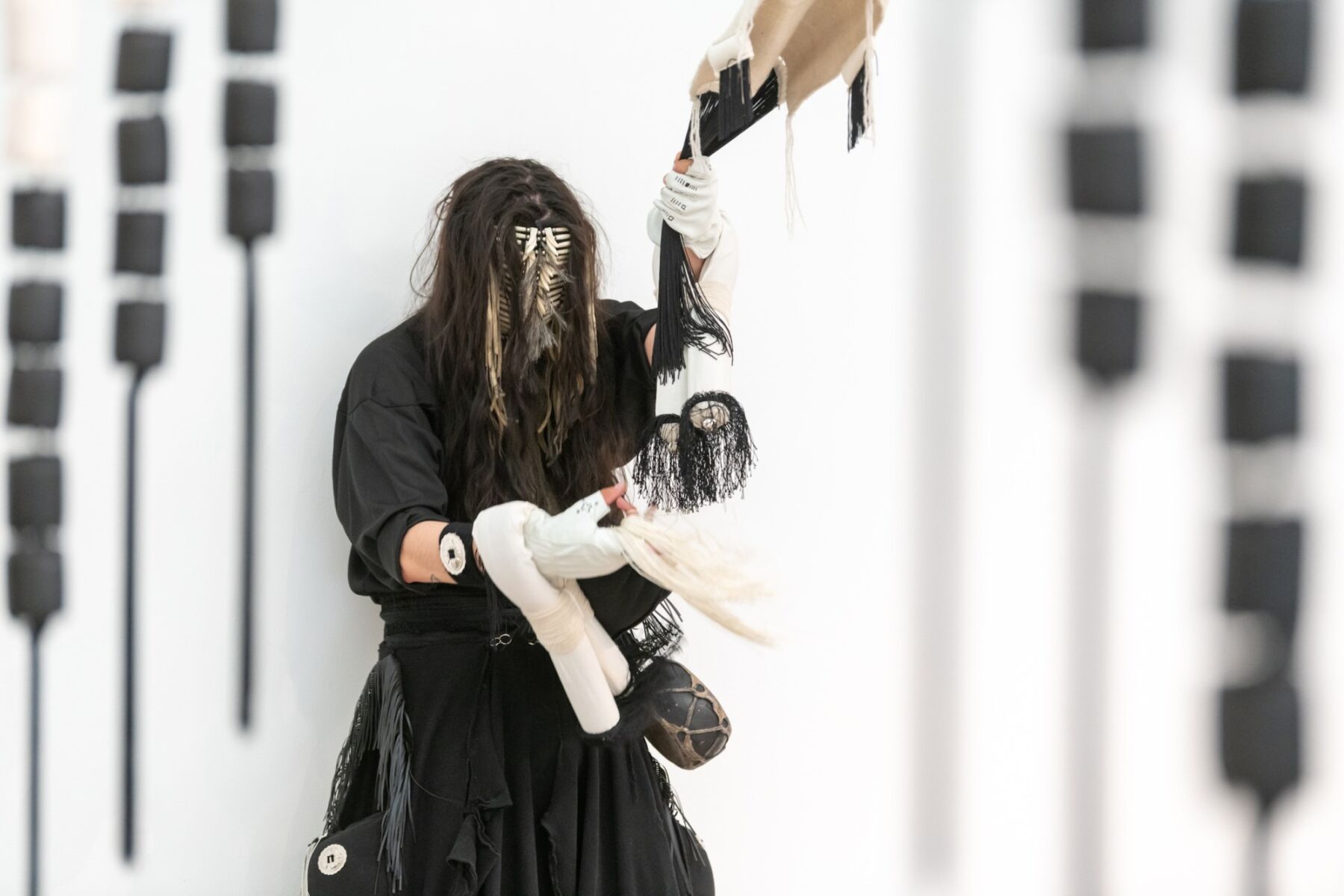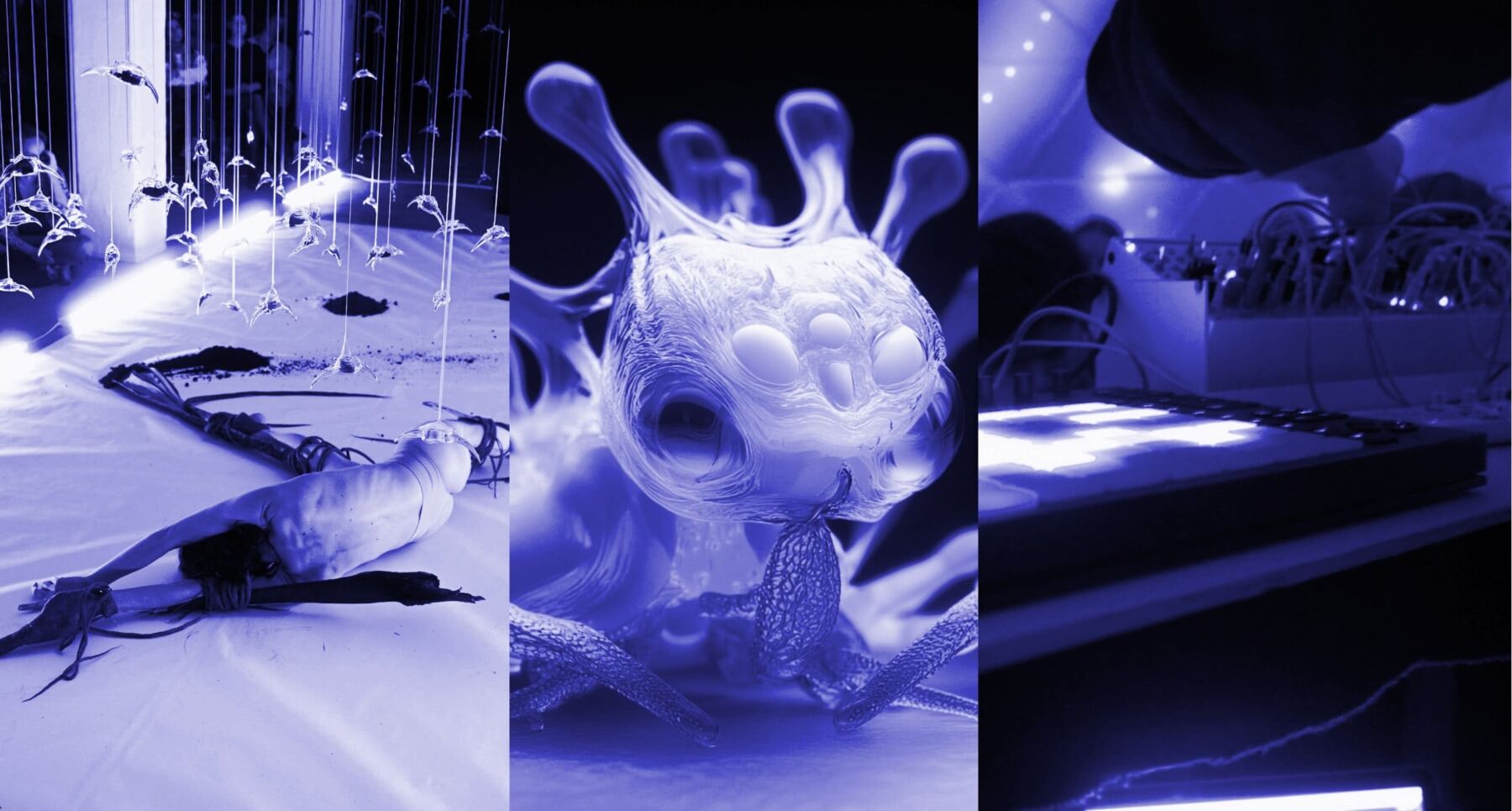Text by Giulia Ottavia Frattini
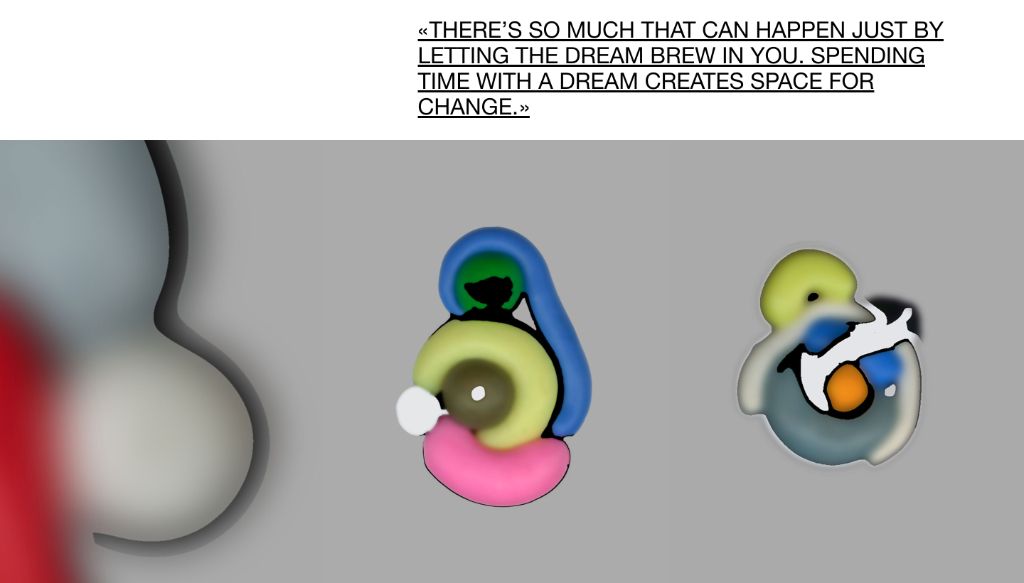
The oneiric dimension and the sphere of the unconscious can be considered, in a sense, as an extension and a continuation of the realm of wakefulness. In the time of sleeping, one enters a doorway and penetrates the domain where anything appears feasible, following logics that might differ from those that regulate the world of the awake. Yet, the domain of dreams is permeated with impressions, experiences, ideas, and constructions of reality before the nocturnal time. In some respects, dreams are an augmented perspective of our lives regarding the potential occurrences that can be encountered.
The oneiric sphere has always been a wellspring of exploration and inspiration for creators who regard it as a source for generating their work and outlining their poetics. According to distinct positions, the frame of the dream can be intended, among several approaches, as a moment of highest introspection, as an unconscious reflection of the cultural scene in which we reside, as a picture of the mental state of a given time, an act of authentic expression, a method of revelation and unfolding of the non-visible or personal narratives, a universe of which we may be to a greater or lesser degree aware and that we might learn to control lucidly.
Intrigued by such topics, writer and editor Charmaine Li, whose practice centres on investigating and questioning the unknown, the known, and the mystery lurking in our world, founded in 2019 with writer Effie Efthymiadi ONEIRIC.SPACE, an experimental research platform devoted to cross-disciplinary discussions and collective learning about dreaming. Since dreams are enigmatic, ONEIRIC.SPACE seems to be a container I’ve created to explore our relationship to not knowing and our capacity to hold complexity.
The project began as an online magazine and website developed by Studio Push – then extended to a quarterly newsletter, a space dedicated to focused gatherings and collaborations, an archive of exchanges -, in which interviews and intimate conversations with individuals coming from the fields of art, culture, science, philosophy are published.
Each conducted interview is visually designed and conceived to correspond to the specific content unleashed during the dialogue and the dream-related material shared with and by the interviewee. Therefore, each conversation is meant to stand as a sui generis piece, with unique aesthetics and format not to homogenise contents existing on the site, presenting itself as a self-contained cosmos.
The founders’ core purpose in their aims and investigations is to examine how dreams intertwine with our waking lives under several layers by covering an area of study and knowledge that is perhaps not thoroughly addressed.
ONEIRIC.SPACE was born out of a desire to spark conversations and learn how people from various disciplines engage with their dreams. For more than ten years, I had been gathering research on dreaming independently from the worlds of science, art, literature, philosophy, and spirituality. However, I found it difficult to find contemporary perspectives in one place online. Also, I noticed that there was a kind of cultural stigma surrounding conversations about dreams in day-to-day life.
Considering we all dream every night, whether we remember our dreams or not, dismissing our relationship to dreams seemed to me that we were dismissing a sizable chunk of our existence. Soon it became clear to me that I wanted to create and grow space for interdisciplinary dialogue and learning on the topic. […]
Our aim is to create spaces – online and IRL – to learn about dreams that acknowledge the multidimensional nature of dreaming and the multiplicity of ways of viewing and engaging with dreams. We’re particularly interested in providing greater visibility to researchers, artists and ancestral traditions that have been overlooked in wider discussions about dreams and questioning dominant narratives in this space.
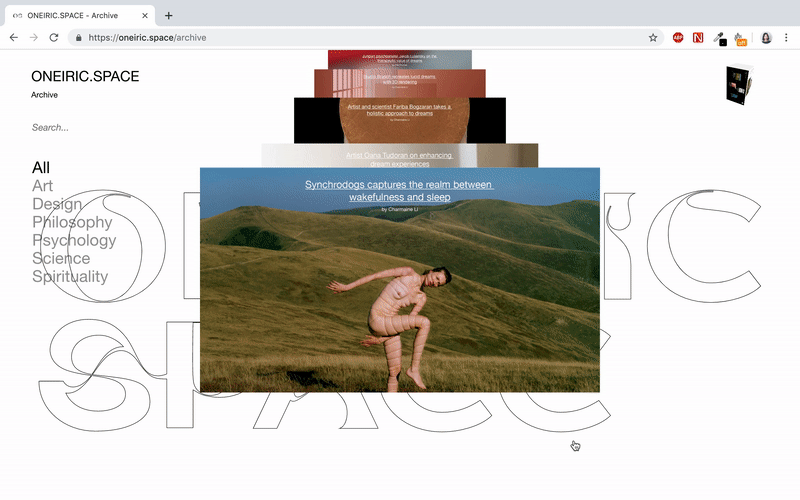
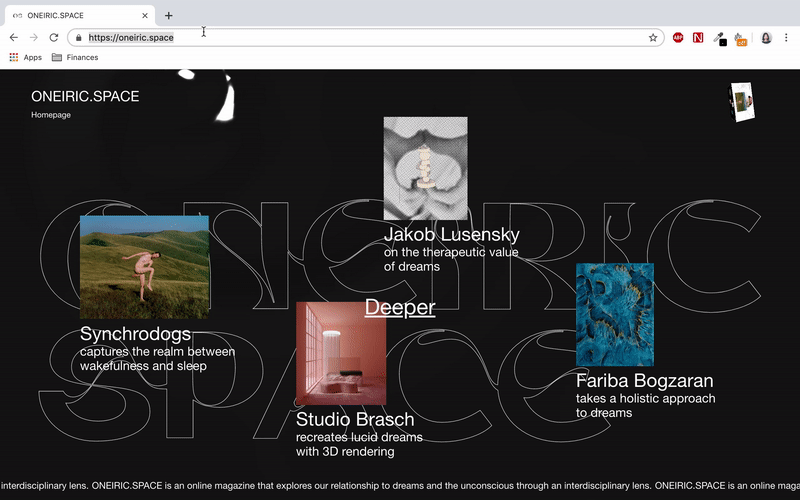
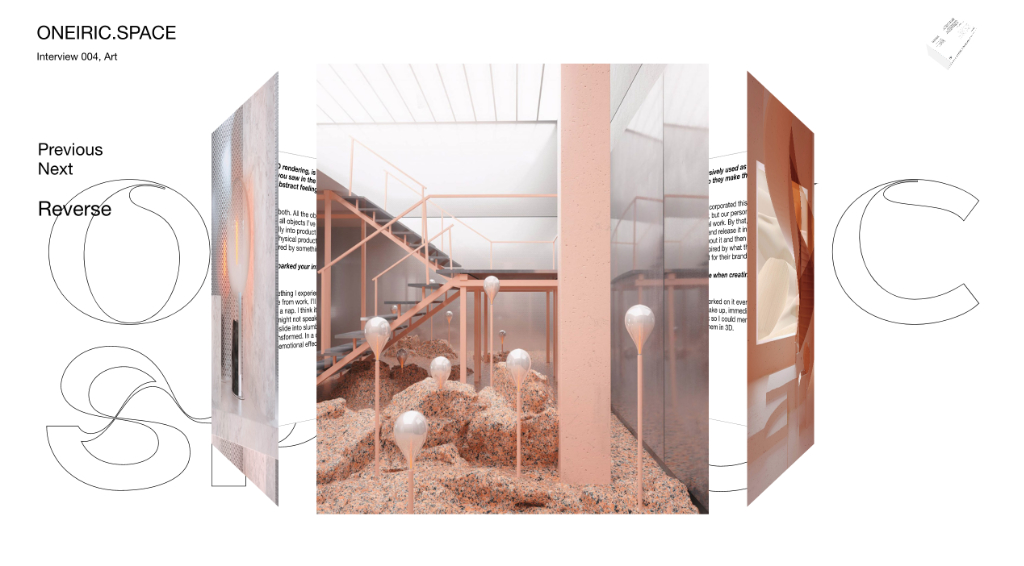
The project is self-feeding and moulded according to the outcomes and what is imparted along its course. One of the findings and intuitions that lately animated and triggered the founders is the idea of “social dreaming”: […] it involves sharing dreams within a group and freely making associations to unveil themes, or anxieties that may be widely shared on a collective level. Instead of focusing on personal narratives in dreams, this practice explores the issues and themes in dreams that might mirror the broader socio-cultural context of the participants.
This intuition led to the participation and collaboration Haus am Lützowplatz, where ONEIRIC.SPACE editors read selected dream collections submitted anonymously through a Google Submission form. The dominant feeling and red thread binding the dreams shared was the feeling of anxiety, to which the title itself of the event – “Anxiety Release Reading” – comes.
We wanted to examine the widespread sense of anxiety that many of us in our circles were feeling due to the political climate in the US and Europe. […] Instead of resisting or suppressing uncomfortable feelings, we were interested in bringing the various shades of anxiety into a physical space and investigating their dream forms and waking forms with a public audience, Charmaine Li states, and adds Since the pandemic broke out, people have also been reporting more vivid dreams all over the world. This has further strengthened my curiosity on how sharing and engaging with dreams in a group could help us gain insight or meaning into our current collective moment.
When we refer to the current and present era, it is also almost a foregone conclusion to invoke the impact that technologies and the digital sphere exert on social and cultural patterns. The influence of permanent immersion in a virtual world could thus also have an effect on the dream dimension of individuals who drift from one realm to another on a daily basis.
Nevertheless, the question stays open to various takes. In Charmaine Li opinion, the digital and Internet realms didn’t affect the amount of time we have to sleep each day as much as, perhaps, our ability to sleep deeply and to relish the time upon waking without succumbing to urges to look at our phone or check emails, for instance. I suppose it’s now much more important to consciously consider our habits before sleeping and upon waking and how they might impact the quality of our sleep. […] Having access to incredible amounts of information at our fingertips means that we’re often inundated by content from multiple channels and also feel the pressure to be constantly doing, doing, doing.
The subtle prompt is to raise greater mindfulness to have increased control over the quality of time that might be destined to dream activity and inner nocturnal existence.




